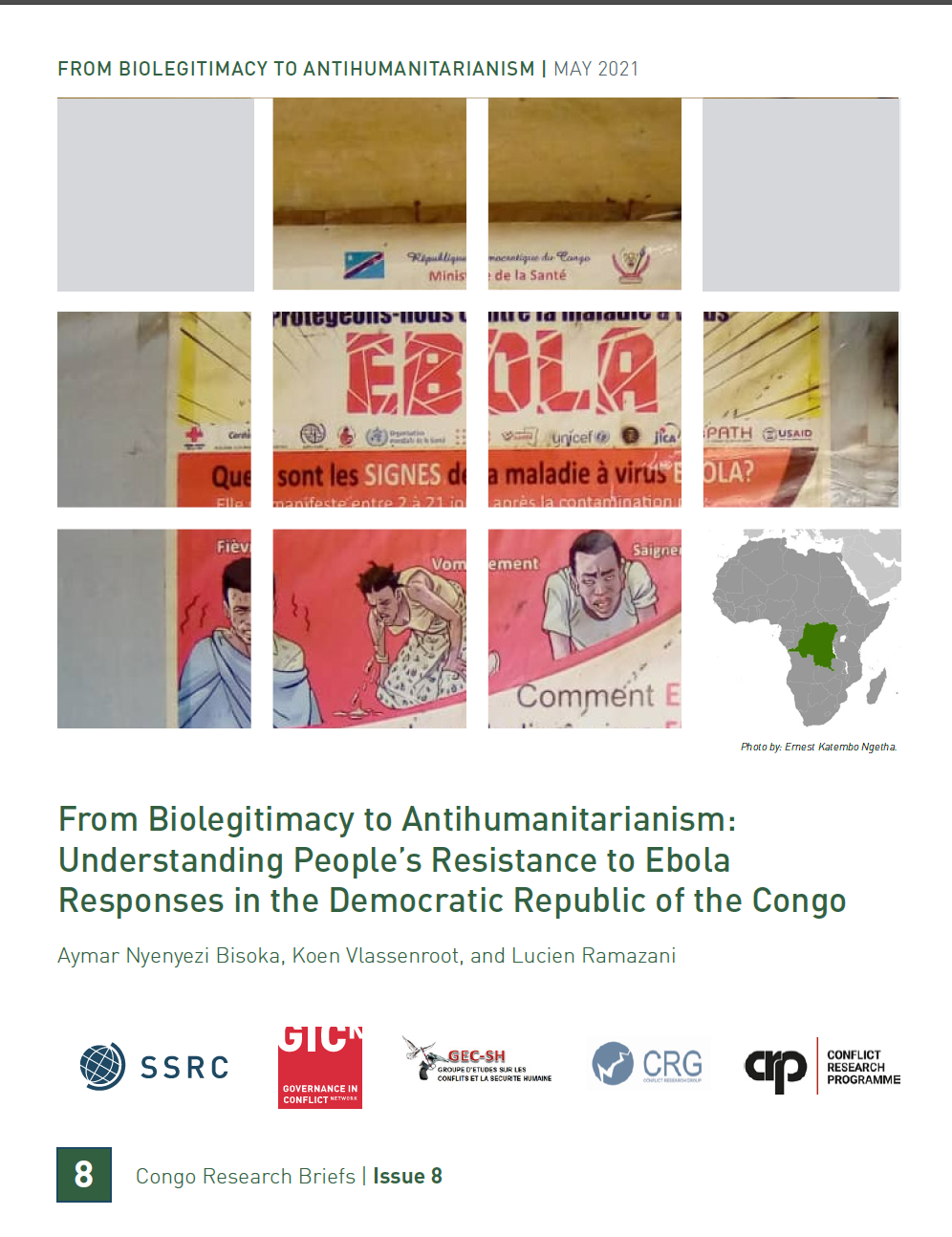From Biolegitimacy to Antihumanitarianism: Understanding People's Resistance to Ebola Responses in the Democratic Republic of the Congo
The tenth outbreak of Ebola hemorrhagic fever in the Democratic Republic of the Congo (DRC) officially started in August 2018 in the eastern province of North Kivu, leading the World Health Organization (WHO), on July 17, 2019, to recognize it as a “public health emergency of international concern.” At its formal conclusion on June 26, 2020, the pandemic had resulted in 3,470 reported cases, including 2,287 deaths. Despite its devastating impact, local populations seemed to be skeptical about the existence of the new pandemic. Consequently, the outbreak saw substantial and often fierce local resistance to the medical response, including armed attacks on Ebola treatment centers (ETCs) and violence toward health centers, health workers, and caregivers, all of which seriously disrupted the response and restricted access to affected communities in several places. Inspired by the belief that Ebola was invented by Wazungu (NGOs or politicians), these attacks and other forms of resistance were carried out by various actors, including armed groups, customary chiefs, state agents, health-care workers, and patients and their families.
Based on extensive field research conducted by a team of ten researchers, carried out in May and December 2020 in Ebola-affected areas in North Kivu, this research brief documents and analyzes the resistance of a variety of actors against the Ebola response and connects it to larger popular sentiments and positionings toward humanitarianism. This brief first investigates the Ebola response, both in terms of patient care and prevention, and pays particular attention to the security logics of the response, which are the basis of local mistrust and resistance. Then, the research brief looks into the different acts of resistance, their actors, and their discourses, in order to understand the logics underlying the antihumanitarianism that it suggests and that has been recorded in the region for several years. Finally, we present a genealogical and political economy perspective on Ebola to understand the contemporary and historical factors underlying the issues related to the public’s response.
The Congo research briefs are a joint publication of the Conflict Research Group (CRG) at Ghent University, the Social Science Research Council (SSRC), the Study Group on Conflicts and Human Security (GEC-SH) at the University Research Center of Kivu (CERUKI), and the Governance-in-Conflict Network (GiC). These provide concise and timely summaries of ongoing research on the Congo that is being undertaken by CRG, SSRC, GEC-SH, GiC, and their partners.
We are grateful for the comments received from An Ansoms and Cécile Giraud on earlier versions of this paper.
This Congo Research Brief is an output of the Conflict Research Programme funded by UK Aid from the UK Government. The view expressed do not necessarily reflect the UK government’s official policies.




